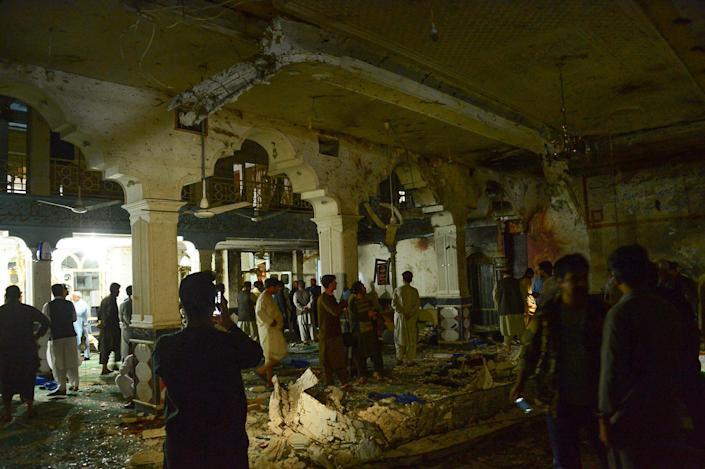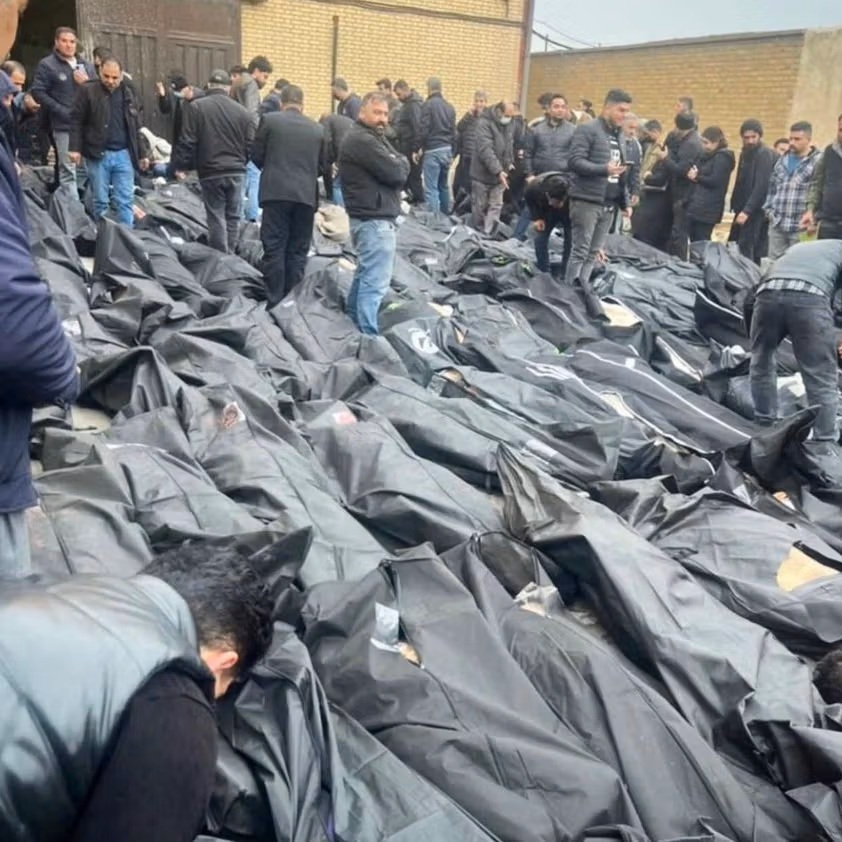
Suicide bombers assaulted a Shiite mosque in southern Afghanistan that was packed with worshippers attending weekly Friday prayers, killing at least 37 people and wounding more than 70, according to a hospital official and an eyewitness.
The attack on the Imam Barga mosque came a week after a bombing claimed by a local Daesh affiliate killed 46 people at a Shiite mosque in northern Afghanistan.
Murtaza, an eye-witness who like many Afghans goes by one name, said four suicide bombers attacked the mosque. Two detonated their explosives at a security gate, allowing the other two to run inside and strike the congregation of worshippers.
Speaking to The Associated Press by phone, he said Friday prayers are typically attended by around 500 people.
Video footage from the scene showed bodies scattered across blood-stained carpets, with survivors walking around in a daze or crying out in anguish.
A local hospital official was not authorized to brief media and so confirmed the casualty toll on condition of anonymity.
The extremist group, which is opposed to the ruling Taliban, views Shiite Muslims as apostates deserving of death.
Daesh has claimed a number of deadly bombings across the country since the Taliban seized power in August amid the withdrawal of US forces. The group has also targeted Taliban fighters in smaller attacks.
Taliban spokesman Bilal Karimi confirmed the explosion and said an investigation was underway, without providing further details.
The Taliban have pledged to restore peace and security after decades of war. Both the Taliban and Daesh adhere to a rigid interpretation of Islamic law, but Daesh is far more radical, viewing itself as part of a worldwide Islamic caliphate that includes better-known branches in Iraq and Syria.
The Taliban and Daesh are Sunni Muslims, but they are bitterly split by ideology and have fought each other on numerous occasions.
That Taliban have pledged to protect Afghanistan’s Shiite minority, which suffered persecution during the last period of Taliban rule, in the 1990s.
Source: Arab News





